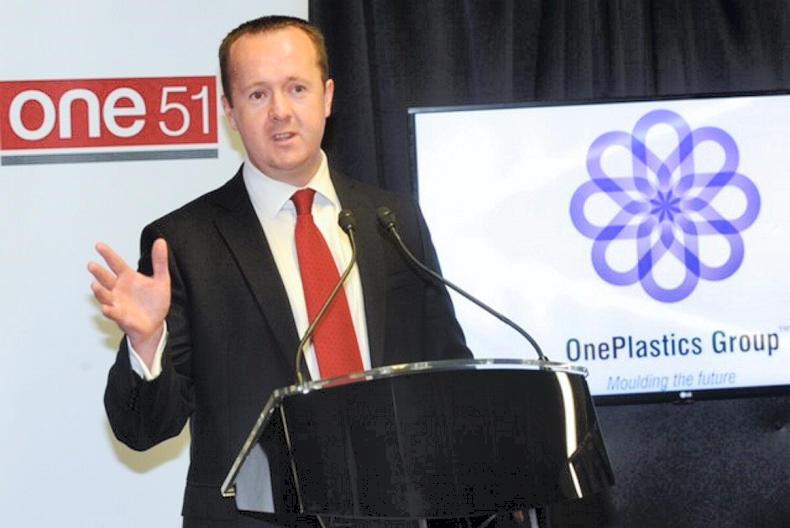Dublin-headquartered IPL Plastics, the company formerly known as One51, has announced it will seek an initial public offering (IPO) and stock market listing on the Toronto TSX stock exchange later in 2018.
The company, which has over 2,000 Irish shareholders, including Larry Goodman and Irish co-ops such as Glanbia, Lakeland, Dairygold and Kerry, was considering the potential for a dual listing in Toronto and Dublin.
IPL made the announcement as it unveiled a 46% jump in profits (EBITDA) to just under €71m. Sales for the group increased by more than a third (+36%) to €474m. The strong growth in sales and profits was driven by continued organic growth, as well as contributions from US acquisitions.
The company also completed its reorganisation at the end of February, after shareholders voted at an EGM in December 2017 to change the group’s name from One51 to IPL Plastics and restructure the share capital of the business to allow for a 2018 stock market flotation to proceed.
This corporate reorganisation saw the Canadian investment giant Caisse de Depot et Placement de Quebec (CDPQ), and Fonds de Solidarite des Travailleurs du Québec, swap their combined 33% holding in IPL for a total 22% additional holding in One51.
The two investment entities will own a combined 41.5% stake in IPL Plastics prior to an IPO. Irish co-ops, including Glanbia, Kerry, Lakeland and Dairygold, collectively own around 21% of IPL today. The company has hired three Canadian banks to handle the IPO.
Putting a value on shares
Original shareholders have patiently watched the management team led by CEO Alan Walsh turn the company’s operational performance around. These shareholders have also waited for a long-promised liquidity event. However, the co-ops may be disappointed with the likely price of a flotation.
While initial public offers can be lower than the real valuation, now that the company is seeking a Canadian listing, it could value the company higher. In Canada, the company is likely to receive a higher earnings multiple of 9.5 times compared with eight times in the UK. Based on earnings, the higher multiples would value the company €100m higher at around €440m. This would translate into a price of around €2.13 per share. The shares have been trading at around €2 to €2.10 over the last few weeks, but trading has been thin.
This valuation is unlikely to excite co-op shareholders. Capvest’s offer, which fell through last October, was higher at €2.50.
Then billionaire Dermot Desmond’s deal, which saw the Canadians gain greater control, is believed to have been at a price of €2.60 to €2.80 per share, adding salt to the wounds of the original shareholders. So while there may be an opportunity to exit in the near future on a regulated, liquid market, will the co-ops ever get a price similar?






 This is a subscriber-only article
This is a subscriber-only article










SHARING OPTIONS: